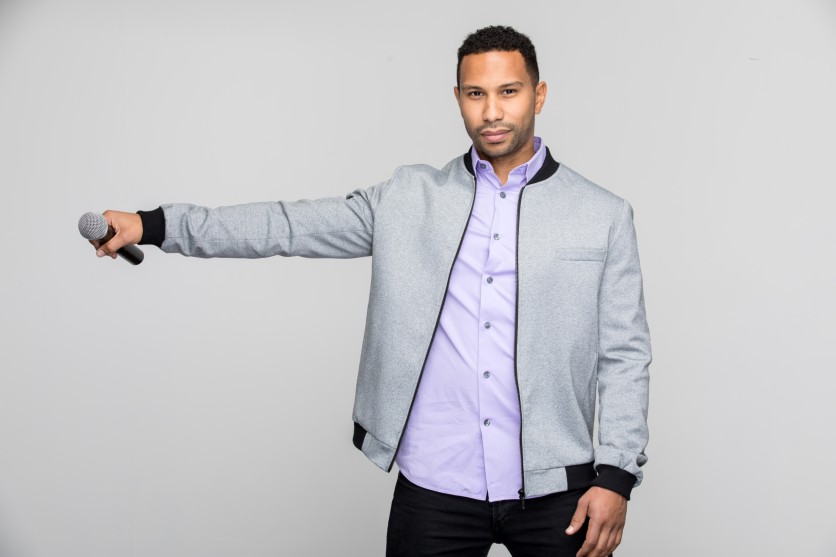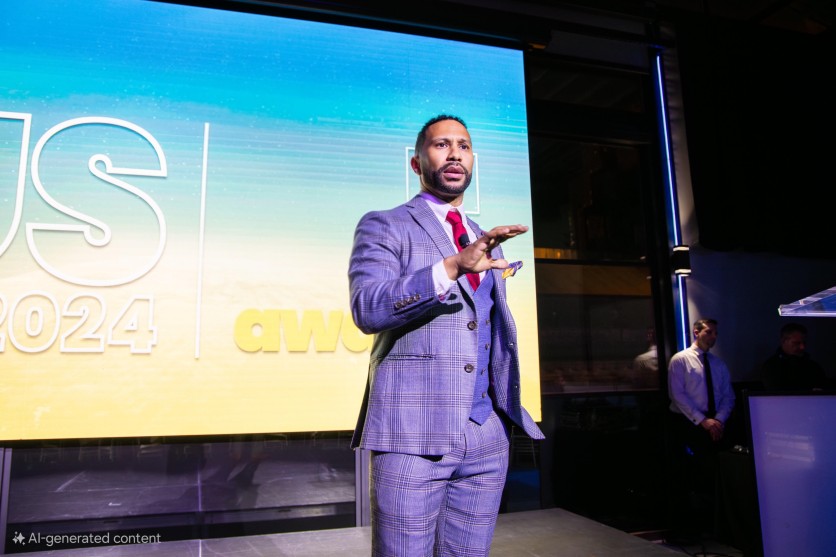From DJ decks to corporate stages, Aaron Smalls is redefining what it means to lead with presence. In this conversation, he shares his top lessons on mastering charisma and why playfulness is just as important as power.

Q: You talk a lot about "social energy" as a leadership tool. What does that actually mean?
Aaron Smalls: Social energy is the emotional undercurrent you bring into a space. Before people hear what you say, they feel who you are. Energy connects people. It's not something you create; it's something you tune into and transmit. A leader who's aware of their own energy and aligned with it can shift a room just by showing up fully present. Great leaders don't just inform. They inspire through their energy.
Lesson 1: Energy sets the tone of intention before information.
One key shift, Aaron explains, is that real, meaningful influence doesn't come from blasting energy out to a crowd; it comes from exchanging it person by person, like a game of energetic ping-pong. "When you get good at reading the room, you can align with people's energy before influencing it," he says. "If you show up at a 10 in energy and the crowd is at 3, they'll shut down." Great leaders don't overpower the energy; they calibrate it.
Q: How does your background in hosting, acting, and DJing influence the way you coach leaders today?
Aaron: Everything I've done has trained me to connect in real time. A DJ reads a room. An actor listens between the lines. A host knows when to lead and when to hold space. These roles are all about presence, timing, and awareness. I bring that into leadership coaching, helping people tune in to subtle cues, improvise with confidence, and show up with generosity. Preparation matters, but connection, seeing and hearing people, is what really earns trust.
Lesson 2: You're not the main event, you're the conductor.
Aaron emphasizes the importance of "moment before" and "moment after" thinking—lessons drawn from his acting background. He prepares deeply but never overplans so that he can pivot and respond in real time—it's preparatory agility. "The world doesn't need another leader stuck to a script," he says. "You build trust by showing you can improvise and adapt with grace."
Q: What's the biggest charisma mistake people make?
Aaron: Trying to be impressive. When you walk into a room with a "look at me" energy, you create separation. People sense when your attention is on proving something instead of connecting. Real charisma doesn't perform. It invites. It's about being grounded in who you are and letting others feel seen in your presence.
Lesson 3: Drop the mask. Invite people in.
"Social media trained a lot of people to lead with performance," Aaron reflects. "But performance without connection isn't charisma—it's noise."
Q: You say, "read the room, then regulate it." What does that mean?
Aaron: It means leadership starts with listening. Don't try to force a vibe. First, pay attention to the noise level, the body language, the energy that came before you walked in, and what's needed after you leave. Once you're attuned, you can use your voice, pacing, and expression to shift the tone. Think of it like DJing. You're not dominating the energy; you're guiding it with consideration and precision.
Lesson 4: Charisma is being responsive, not reactive.
Aaron scans for "energetic allies" in the crowd, those leaning in, smiling, eyes lit. "When I find those people, I connect with them first," he says. "They help me expand the energy to the rest of the room. If I focus too early on the person with arms crossed, I'm climbing uphill." Charisma doesn't seek resistance; it builds momentum with receptivity.
Q: You reframe resilience as something more active than we typically hear. Why is that important?
Aaron: Resilience often sounds like endurance. Just hold on. Just survive. But I want people to go further than that. It's not just about recovery. It's about reinvention. Setbacks should refine you, not just harden you. I encourage people to see adversity as the moment to evolve. That's how you lead from experience, not ego.
Lesson 5: Don't bounce back, bounce forward.
Q: Why do you emphasize play as a leadership principle?
Aaron: Play builds trust. It opens people up. When leaders bring a sense of play into a space, through humor, creativity, or lightness, it disarms fear. It creates a climate where people feel safe to participate and express themselves. Play isn't the opposite of power. It's one of the purest expressions of it.
Lesson 6: Play disarms fear.
He adds: "Improv taught me that the best leaders say 'yes, and' instead of 'no, because.' That simple shift turns resistance into possibility. Play isn't frivolous. It's a gateway to deeper connection and unexpected insight."
Q: What's one simple thing someone can do to build charisma right now?
Aaron: Shift your focus. Stop obsessing over how you sound. Start paying attention to how people feel around you. That's the real measure of presence. When you lead with emotion and stay anchored in service, you stop performing and start connecting. That's charisma.
Lesson 7: Lead with emotion, anchor in service.
"Find the people who are ready to receive what you're sharing," Aaron advises. "Direct your energy through them, and they'll help you carry the message further. Charisma doesn't scale by shouting. It scales by connecting."

Aaron Smalls teaches that charisma isn't something you're born with. It's something you build by aligning your energy with your intention. Whether he's coaching executives, hosting live events, or DJing a packed room, he leads with presence, not performance. His Charismatic Advantage® program is built on this principle: great leadership is less about being impressive and more about being in tune with yourself and the room. "Charisma isn't curated—it's felt. And that's what I focus on: showing up fully, and letting people feel seen."
ⓒ 2026 TECHTIMES.com All rights reserved. Do not reproduce without permission.





